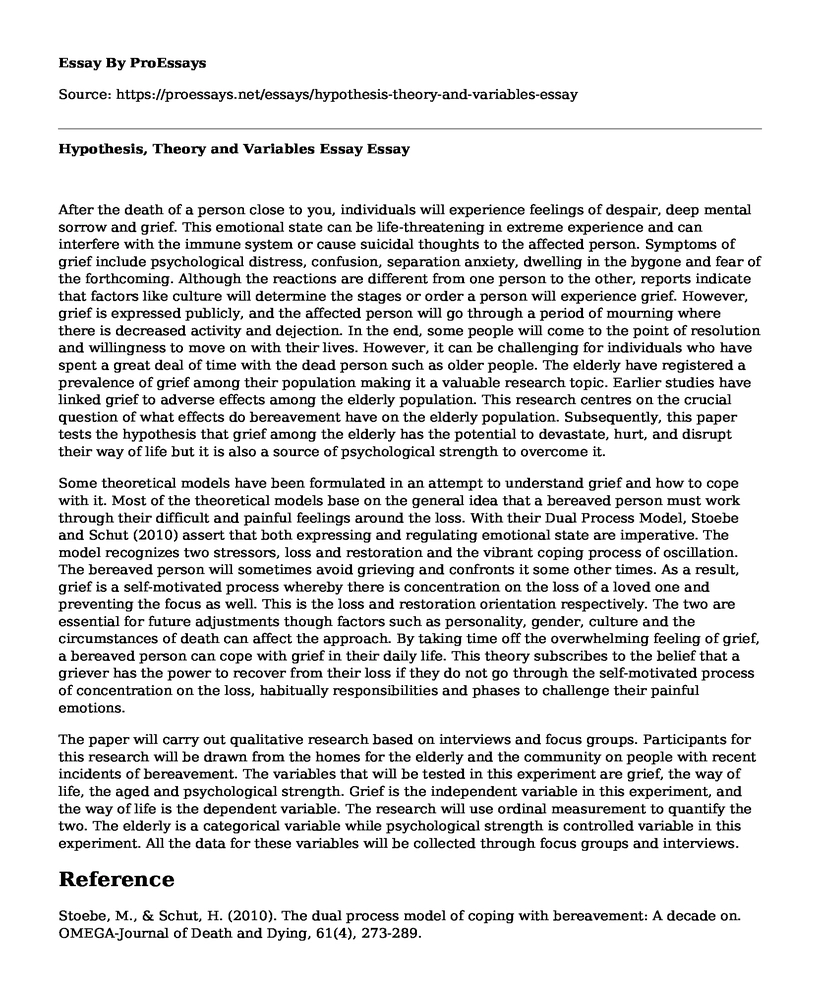After the death of a person close to you, individuals will experience feelings of despair, deep mental sorrow and grief. This emotional state can be life-threatening in extreme experience and can interfere with the immune system or cause suicidal thoughts to the affected person. Symptoms of grief include psychological distress, confusion, separation anxiety, dwelling in the bygone and fear of the forthcoming. Although the reactions are different from one person to the other, reports indicate that factors like culture will determine the stages or order a person will experience grief. However, grief is expressed publicly, and the affected person will go through a period of mourning where there is decreased activity and dejection. In the end, some people will come to the point of resolution and willingness to move on with their lives. However, it can be challenging for individuals who have spent a great deal of time with the dead person such as older people. The elderly have registered a prevalence of grief among their population making it a valuable research topic. Earlier studies have linked grief to adverse effects among the elderly population. This research centres on the crucial question of what effects do bereavement have on the elderly population. Subsequently, this paper tests the hypothesis that grief among the elderly has the potential to devastate, hurt, and disrupt their way of life but it is also a source of psychological strength to overcome it.
Some theoretical models have been formulated in an attempt to understand grief and how to cope with it. Most of the theoretical models base on the general idea that a bereaved person must work through their difficult and painful feelings around the loss. With their Dual Process Model, Stoebe and Schut (2010) assert that both expressing and regulating emotional state are imperative. The model recognizes two stressors, loss and restoration and the vibrant coping process of oscillation. The bereaved person will sometimes avoid grieving and confronts it some other times. As a result, grief is a self-motivated process whereby there is concentration on the loss of a loved one and preventing the focus as well. This is the loss and restoration orientation respectively. The two are essential for future adjustments though factors such as personality, gender, culture and the circumstances of death can affect the approach. By taking time off the overwhelming feeling of grief, a bereaved person can cope with grief in their daily life. This theory subscribes to the belief that a griever has the power to recover from their loss if they do not go through the self-motivated process of concentration on the loss, habitually responsibilities and phases to challenge their painful emotions.
The paper will carry out qualitative research based on interviews and focus groups. Participants for this research will be drawn from the homes for the elderly and the community on people with recent incidents of bereavement. The variables that will be tested in this experiment are grief, the way of life, the aged and psychological strength. Grief is the independent variable in this experiment, and the way of life is the dependent variable. The research will use ordinal measurement to quantify the two. The elderly is a categorical variable while psychological strength is controlled variable in this experiment. All the data for these variables will be collected through focus groups and interviews.
Reference
Stoebe, M., & Schut, H. (2010). The dual process model of coping with bereavement: A decade on. OMEGA-Journal of Death and Dying, 61(4), 273-289.
Cite this page
Hypothesis, Theory and Variables Essay. (2022, Apr 04). Retrieved from https://proessays.net/essays/hypothesis-theory-and-variables-essay
If you are the original author of this essay and no longer wish to have it published on the ProEssays website, please click below to request its removal:
- The Relationship Between Survival and Resilience - Paper Example
- Paper Example on Qualitative Data Analysis Software
- Nokia Corporation Marketing Analysis Paper Example
- Post-Traumatic Stress: Coping With Trauma Symptoms for Short and Long-Term Relief - Essay Sample
- Essay Example on Personality Psychology: Debates on Situationism vs Personal Traits
- Paper Example on Reducing Obesity in Emerald City: A Critical Challenge
- Essay Example: Unraveling the Patterns and Motivations of Serial Killers







